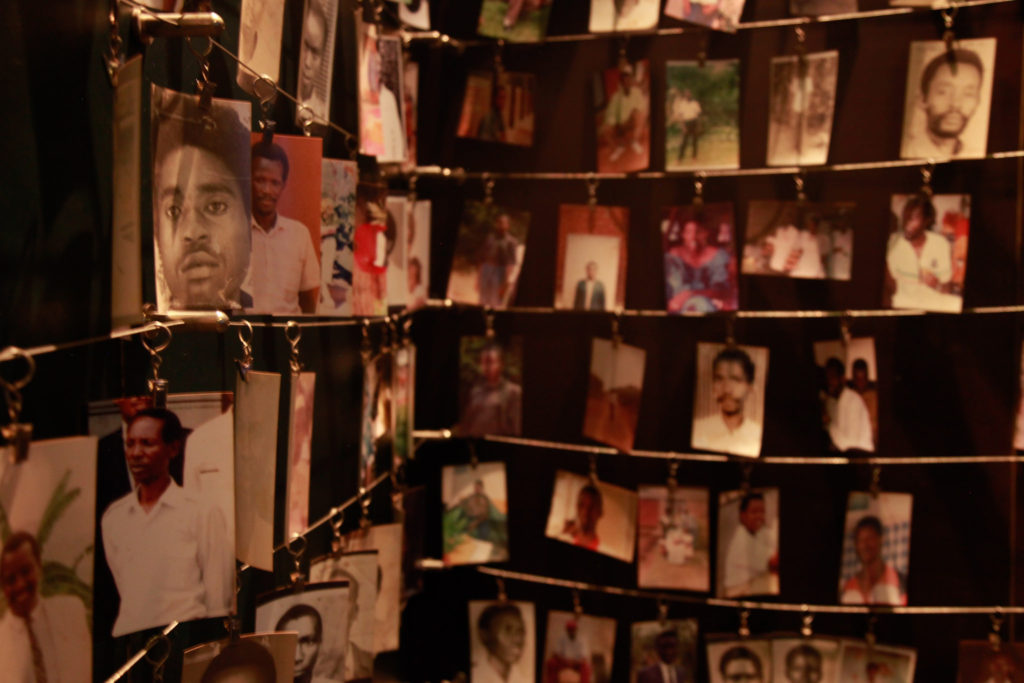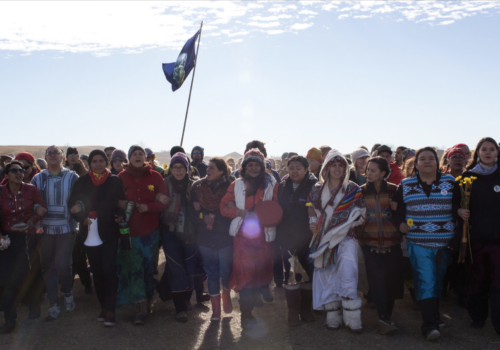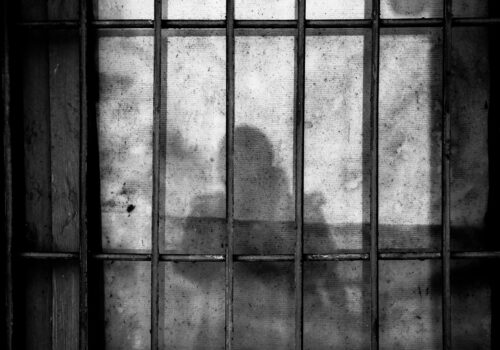Download PDF: Whitmore, Genocide or Just Another
Editor’s Note (December 22, 2010): Dr. Todd Whitmore of the University of Notre Dame published his peer-reviewed article “‘If They Kill Us, At Least Others Will Have More Time to Get Away’: The Ethics of Risk in Ethnographic Practice” in our most recent issue (issue 3, spring 2010). In that article, Dr. Whitmore develops a theological framing of ethnography as both a research method and an ethical practice. Since the publication of “If They Kill Us,” Dr. Whitmore has been in conversation with Practical Matters about the publication of documents, dating from the 1980s, that he received while doing research in Northern Uganda (available at musevenimemo.org). These documents attribute to the sitting President of Uganda, Yoweri Museveni, the intent to commit acts of genocide against the Acholi people, an ethnic group situated in Northern Uganda, as early as the 1980s.
Over the summer of 2010, Practical Matters undertook an academic review process, which included experts in Ugandan history and politics, to evaluate both the authenticity of these documents and the ethical implications of publishing them. While the reviewers generally supported the journal in a decision to publish the documents, Practical Matters decided that it is not the most appropriate medium in which to make these documents available. Practical Matters, the journal’s editors and advisors concluded, cannot adequately contribute to securing the safety of persons in Uganda who might face retaliation as a result of the publication of these documents.
The journal did, however, decide to publish Whitmore’s analysis of these documents, which is available here. In this piece, Whitmore examines the historical and political situation in Northern Uganda that, he thinks, renders the documents’ purported provenance and authenticity likely. He also explores the ethical implications of publishing them in an online format. The editors and advisors of Practical Matters feel that it is important to provide Whitmore a public context in which to practice the ethic he prescribes in “If They Kill Us.”
- Introduction
- Part I: The Interpretive Context of Intrigue
- Part II: The Authenticity of the Document: Policy Shifts, Land, Language, and Names
- Part III: The Implications of the Document: Genocide
- Concluding Remarks
Introduction1
On one occasion during the course of my fieldwork in Uganda, a person passed to me a document that purported to be a memo from Ugandan President Yoweri Museveni to his brother Salim Saleh. The author of the memo refers to the Acholi people of northern Uganda as “Chimpanzees” and “Monkeys” and wants to “drastically reduce the population” so that he can obtain their abundant and fertile land (“I have now realized that the Monkeys called Acholis are sitting upon Gold Mine”). Given the potential importance of the memo, I had the document assessed as to its possible authenticity by two experts on Uganda’s political history and one scholar on African political leaders. Based on their judgments and further investigation of my own into the possible authenticity of the document, I have decided to make the memo public. It is available for viewing at musevenimemo.org.
In the present article, I provide my own analysis of the memo. In the first major section of the article, I describe the context within which I received it. All documents have their social settings, and understanding those settings is important for interpreting the documents. The broader social context in which I received the memo is one of intrigue. Although I came to Uganda to study traditional Acholi culture and its interaction with Christianity (I am a theologian by training), from the start I have been closely monitored and even followed by government operatives. Correspondingly, on multiple occasions people, each unsought on my part, have pulled me aside both to warn me of such operatives and to press upon me information, sometimes documented, regarding government human rights violations. They viewed me as their only hope for getting the information out. I followed up on the information, but I did not seek it. Anthropologists often refer to the “positionality” of the researcher—his or her gender, race, nationality, and the like, and how these affect the researcher’s interactions with the people researched. What I have found salient in addition, however, is how the researcher gets positioned by the subjects.2 I did not set out to be an investigator of government wrongdoing; but the government itself presupposed from the start that I was such an investigator, and victims of the government pressed upon me the role of being one. I could have refused, to be sure, but given the information I received, such refusal would have been, in my judgment, morally reprehensible. Had the information simply been about common financial corruption, for instance, I might well have not pursued it. However, given that the memo indicated genocidal plans on the part of the attributed author, I at least had to try to find out if the information was valid.
Therefore, in the second part of the article, I assess the authenticity of the memo based on both its internal contents and the external realities of the document. I should state at the outset that when I received the memo, I did not have a preset sense regarding its authenticity. I now find, however, that the weight of both the internal and external evidence suggests that the document is authentic. Interestingly, the memo has implications for understanding the conflict in Uganda even if it is not authentic. Part of the context of intrigue is that not all—in fact, far from all—information is valid. If the memo is inauthentic, then it would be part of this latter dynamic. It would be an example of the dictum—attributed to a variety of sources from Aeschylus to Sun Tzu to early twentieth century U.S. Senator Hiram Johnson—that truth is “the first casualty of war.”
However, if the memo is authentic, as I think it is, the implications are more severe. It provides evidence of what international lawyers call “specific intent” on the part of Museveni to, in the words of Article 2 of the United Nations 1948 Convention on the Prevention and Punishment of the Crime of Genocide, “destroy, in whole or in part, a national, ethnical, racial, or religious group.” Previous efforts to claim Museveni and the NRM have been involved in genocide have foundered on the problem of intent. If the document is authentic, then the issue of Museveni’s intent is much more straightforward. In the third section of the paper, then, I argue that what went on in northern Uganda between 1986 and 2006 is best described as co-genocide on the Acholi people, first on the part of key figures of the NRM and then also on the part of the leadership of the rebel Lord’s Resistance Army (LRA). Though it is not often highlighted in the legal literature, empirically it is quite possible for two non-collaborating parties to each inflict genocide on a third group of people, and this is what I see as having taken place in northern Uganda.3
I will conclude this article with a section on the implications of the release of the memo for me and those people associated with me. Interestingly, the implications for me and my research in Uganda remain about the same regardless of whether the document is authentic or not. Either way, it most likely means that I will not be let back into Uganda. The greatest risk is to the person who gave me the memo. I am calling her Ageno Komakec, literally “hope suffers all the time” in the Acholi language. I have done everything I can to protect her. I have sent a copy of the memo, together with her real name, to Amnesty International, Human Rights Watch, the United Nations High Commissioner for Human Rights, the United Nations Office of the Special Advisor on the Prevention of Genocide, and the International Criminal Court. These persons and organizations will be watching over the person who gave me the memo so that, should the Ugandan government somehow find out who Ageno is, the government will know that it, too, is being watched.
I should also state up front why I chose to write an article in Practical Matters in conjunction with the release of the memo. War in general and the conflict in northern Uganda in particular often distort truth. It has been important to me that I find a venue in which the way that I interpret the document—a way that I think is truthful—is not lost. Even in the best of journalistic outlets, the pressure of time and the bottom line often leads to the story taking on a shape quite different from its initial telling. I fully expect other people and outlets to pick up the news of the memo now that it is public, but at least I can point to my own best presentation of the facts of the case and their implications should the need arise to do so, as I suspect it will. Practical Matters has the additional advantage of being an online journal, making the article more readily available to the people of Uganda. I am writing this article forPractical Matters, which has required showing its editors the memo before public disclosure, above all because I trust the journal.
Readers who wish to send me their comments can do so to musevenimemo@gmail.com.
- Introduction
- Part I: The Interpretive Context of Intrigue
- Part II: The Authenticity of the Document: Policy Shifts, Land, Language, and Names
- Part III: The Implications of the Document: Genocide
- Concluding Remarks
Photo by Trocaire. Creative Commons License 2.0.
Notes
- I want to thank the two reviewers of this article for their comments. It is not enough to say that their comments simply improved the article; I could not have written the article in its present form without their insights and suggestions.
- I discuss this phenomenon more fully in another article, “Whiteness Made Visible: A Theo-Critical Ethnography in Acholiland.” Forthcoming inEthnography as Theology and Ethics, eds. Christian Scharen and Ana Marie Vigen (New York: Continuum, 2011).
- One possible point of comparison where mutual adversaries both committed atrocities against a third group of people would be the actions of Stalin and Hitler in the region between Germany and Russia—Poland, Ukraine, the Baltic region, and Belarus—in the 1930s and 1940s. See Timothy Snyder,Bloodlands: Europe Between Hitler and Stalin(New York: Basic Books, 2010).






